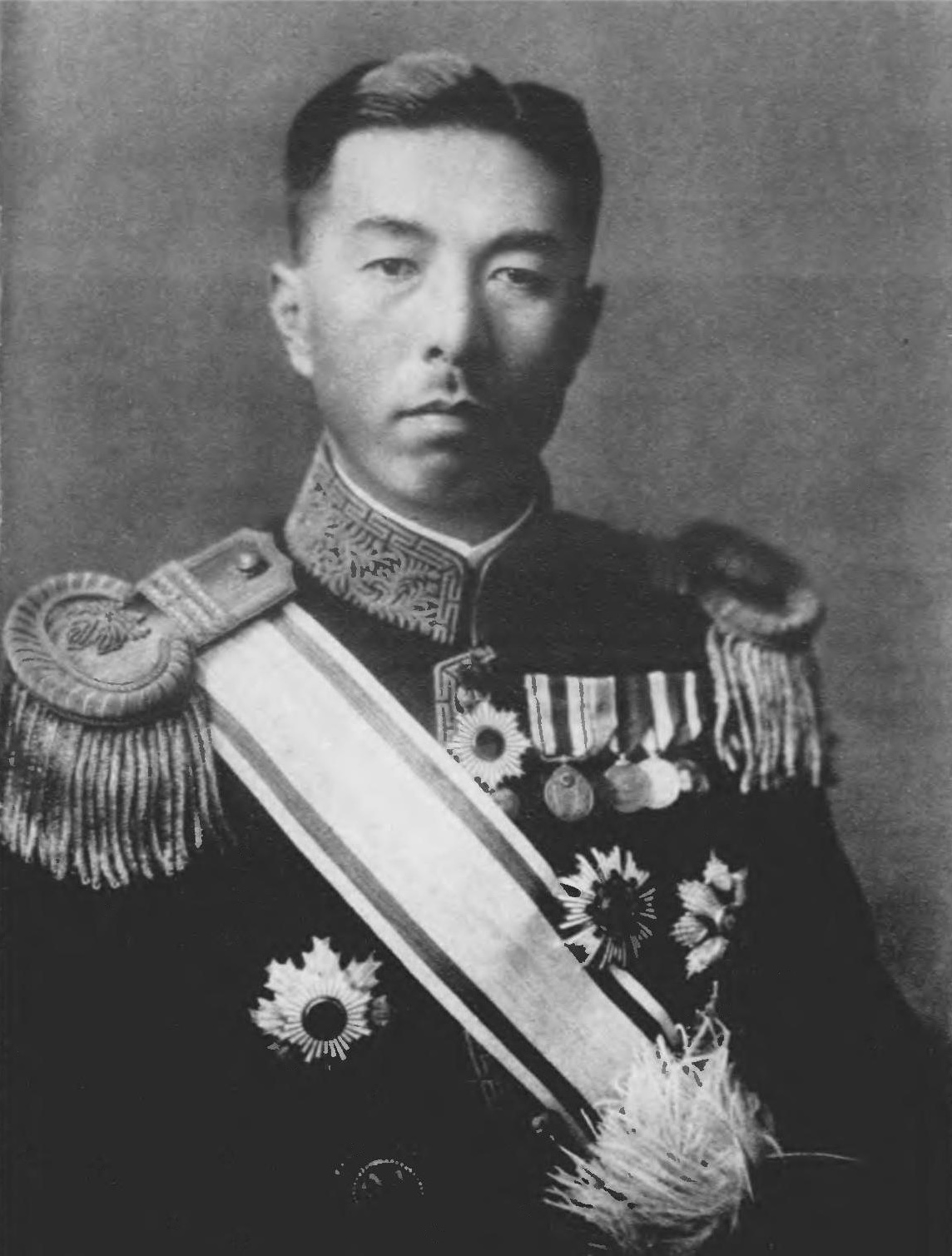Fumimaro Konoe
 was a Japanese politician who served as prime minister of Japan from 1937 to 1939 and from 1940 to 1941. He presided over the Japanese invasion of China in 1937 and the breakdown in relations with the United States, which ultimately culminated in Japan's entry into World War II. He also played a central role in transforming his country into a totalitarian state by passing the State General Mobilization Law and founding the Imperial Rule Assistance Association by dissolving all other political parties.
was a Japanese politician who served as prime minister of Japan from 1937 to 1939 and from 1940 to 1941. He presided over the Japanese invasion of China in 1937 and the breakdown in relations with the United States, which ultimately culminated in Japan's entry into World War II. He also played a central role in transforming his country into a totalitarian state by passing the State General Mobilization Law and founding the Imperial Rule Assistance Association by dissolving all other political parties.Born in Tokyo to a prominent aristocratic family, Konoe took up his father's seat in the House of Peers of the Imperial Diet in 1916. He was a member of the Japanese delegation at the Paris Peace Conference. In 1933, Konoe assumed the presidency of the House of Peers. In 1937, on the recommendation of his mentor Saionji Kinmochi, Konoe was appointed prime minister by Emperor Hirohito. The Marco Polo Bridge Incident took place a month after his appointment and escalated into full-scale warfare. Konoe oversaw Japanese victories during the early phase of the Second Sino-Japanese War and pushed through the State General Mobilization Law, placing the country on war-time footing. Konoe resigned as prime minister in 1939 as Chinese resistance continued and the war dragged on.
Konoe served as chairman of the Privy Council until 1940 when he was again appointed prime minister. The Imperial Rule Assistance Association was founded later that year, while Japan concluded the Tripartite Pact with Nazi Germany and Fascist Italy, launched an invasion of French Indochina and formally recognized Wang Jingwei's government in Nanjing. In 1941, Japan concluded the Soviet–Japanese Neutrality Pact. Despite Konoe's attempts to resolve tensions with the United States, the rigid timetable imposed on negotiations by the military and his own administration's inflexibility set Japan on the path to war. Politically isolated, Konoe resigned as prime minister in October 1941 and was replaced by Hideki Tojo. Six weeks later the Pacific War broke out following Japan's attack on Pearl Harbor.
Konoe remained a close advisor to Hirohito until the end of World War II and played a role in the fall of Tojo cabinet in 1944. At the start of the Allied occupation of Japan, he served in the cabinet of Prince Naruhiko Higashikuni. After coming under suspicion of war crimes, Konoe committed suicide in December 1945, aged 54, by ingesting cyanide. Provided by Wikipedia
-
1
-
2Riben zheng jie er shi nian : Jinwei shou ji /日本政界二十年 : 近衛手記 /日本政界二十年 : 近衛手記 /日本政界二十年 : 近衛手記 /日本政界二十年 : 近衛手記 /
Book -
3Saigo no gozen kaigi : Konoe Fumimaro-kō shuki最後の御前會議 : 近衛文麿公手記最後の御前會議 : 近衛文麿公・手記最後の御前會議 : 近衛文麿公手記最後の御前會議 : 近衛文麿公手記
Book -
4
-
5
-
6
-
7
-
8
-
9
-
10
This item is not available through BorrowDirect. Please contact your institution’s interlibrary loan office for further assistance.Kit Book